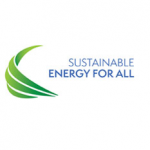Rome , May 20 – As part of the 2nd Annual Sustainable Energy for All (SE4ALL) Forum, a new multi-stakeholder coalition, co-chaired by the UN Food and Agricultural Organization (FAO) and the Roundtable on Sustainable Biomaterials (RSB), announced its intention to speed up the development and deployment of sustainable bioenergy in order to contribute to meeting the SE4ALL goals of doubling the global use of renewable energy and ensuring universal energy access by 2030. Among its key goals is delivering bioenergy options that are environmentally, socially, and economically sustainable, with a focus on emerging markets and rural communities in developing countries. Supported by Novozymes, the world’s largest technology provider to biofuel industries, and the Inter-American Development Bank (IDB), FAO and RSB are co-chairing the sustainable bioenergy effort.
The partnership will engage in dialogue with national governments, civil society, and the private sector to identify opportunities for the further development of sustainable bioenergy, while taking into consideration appropriate agricultural resources, sound environmental management, economic growth rates, energy and food security needs, financing mechanisms, and policy frameworks. As such, the Sustainable Bioenergy High Impact Opportunity (HIO) will pursue three objectives: (i) Knowledge enhancement and information sharing, (ii) Policy support; and (iii) Deployment support. Specifically, the HIO will seek novel means of financing sustainable energy access and renewable fuels projects across the globe.
Kandeh Yumkella, Special Representative of the Secretary-General and chief executive of SE4All, said, “Sustainably managed bioenergy can potentially provide viable alternatives to fossil fuels in a variety of areas, yet it is not widely understood and is held back by regulatory uncertainties and lack of finance. This valuable initiative aims to break through those barriers, bringing the public and private sectors together to help sustainable biofuels make a full contribution to the targets of Sustainable Energy for All.”
RSB Chair Barbara Bramble stated, “RSB sees SE4All as a key framework to promote sustainable bioenergy at scale and believe that it will lead to the advancement of sustainable production on the ground supporting rural development, workers’ rights, biodiversity protection and reduction of greenhouse gas emissions in line with international best practice outlined in the RSB standards. We are really delighted to see the initiative “kick-off” and look forward to working with our members and partners to make it a success.”
Melinda Kimble, Senior Vice President for Programs at United Nations Foundation, pointed out that, “The UN Foundation has always stressed the importance of sustainable bioenergy for helping to meet global energy demand. As was pointed out in the recent IPCC report on Renewable Energy – we cannot get to a low carbon world without sustainable use of biomass. We see the Sustainable Bioenergy HIO as a way to advance the use of biomass to meet pressing global needs.”
Ethan Zindler, Head of Americas at Bloomberg New Energy Finance, said, “The announcement of the HIO comes at a critical time for the global bioenergy industry, when commercial scale next-generation projects are being commercialized for the first time. Bloomberg New Energy Finance looks forward to contributing its market knowledge to the HIO mission.”
Ignaas Caryn, Director Innovation at KLM, commented, “We see public-private partnerships as key to developing the value chain for sustainable aviation fuels. The support that SE4ALL can offer is extremely valuable in creating the right partnerships that are crucial in overcoming the several challenges we face including sustainability, supply and technology development, market creation and finance.”
Thomas Videbæk, Executive Vice President of Novozymes, added, “With this initiative, we help bring together a diverse range of global frontrunners to advance the development and use of sustainable bioenergy in countries where the environmental and socio-economic benefits are greatest. It is a unique chance to involve governments, industry, financial institutions, academia, and civil society to identify opportunities where action on sustainable bioenergy can be accelerated.”
Arnaldo Vieira de Carvalho, responsible for SE4All activities at the IDB and a biofuels expert, concluded, “We are supporting the HIO because we consider this initiative to be a very effective mechanism to promote sustainable bioenergy projects in our region. It presents several competitive advantages in this field given the adequate climate and availability of land, water, labor, and technology in Latin America and the Caribbean. Sustainable bioenergy projects help accelerate the social and economic development of our countries, promoting investment, contributing to family income generation, and reducing poverty, which all together constitute the mission of the Inter-American Development Bank.”
To achieve its goals, the founding partners have assembled a Steering Committee consisting of institutions and corporations internationally recognized for their leadership in sustainable bioenergy policy, technology, and best business practices. The Steering Committee will provide guidance and oversee the work of High Impact Initiatives and Projects that are at the forefront of sustainable bioenergy development and deployment. All types of bioenergy projects are being promoted, including renewable biomass for clean cooking solutions; on-farm bioenergy production to boost agricultural yield and reduce post-harvest losses; distributed electricity production using sustainable biomass from forestry and agriculture coproducts; electricity and fuels from municipal solid waste (MSW); cellulosic ethanol for clean cooking and transportation; and sustainable aviation biofuels.
Multi-stakeholder collaboration to cut risk, unlock opportunity Sustainable bioenergy is energy and fuels derived from renewable sources, which utilize sustainably-sourced feedstock and take account of relevant national or regional circumstances. Although sustainable bioenergy solutions present many opportunities, and are available for large-scale deployment, their roll-out has been hampered by the lack of regulatory and political certainties, stakeholder awareness, and inadequate financing options. It is clear that dismantling risks and bringing projects and solutions to market requires political will, adequate funding, and a multistakeholder collaboration. The founding partners are currently seeking additional stakeholders from governments, industry, financial institutions, academia, and civil society to join the High Impact Opportunity on Sustainable Bioenergy.



